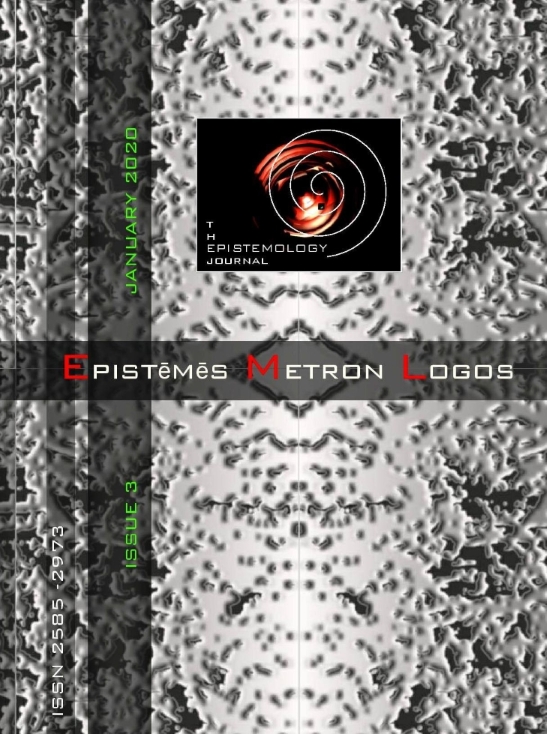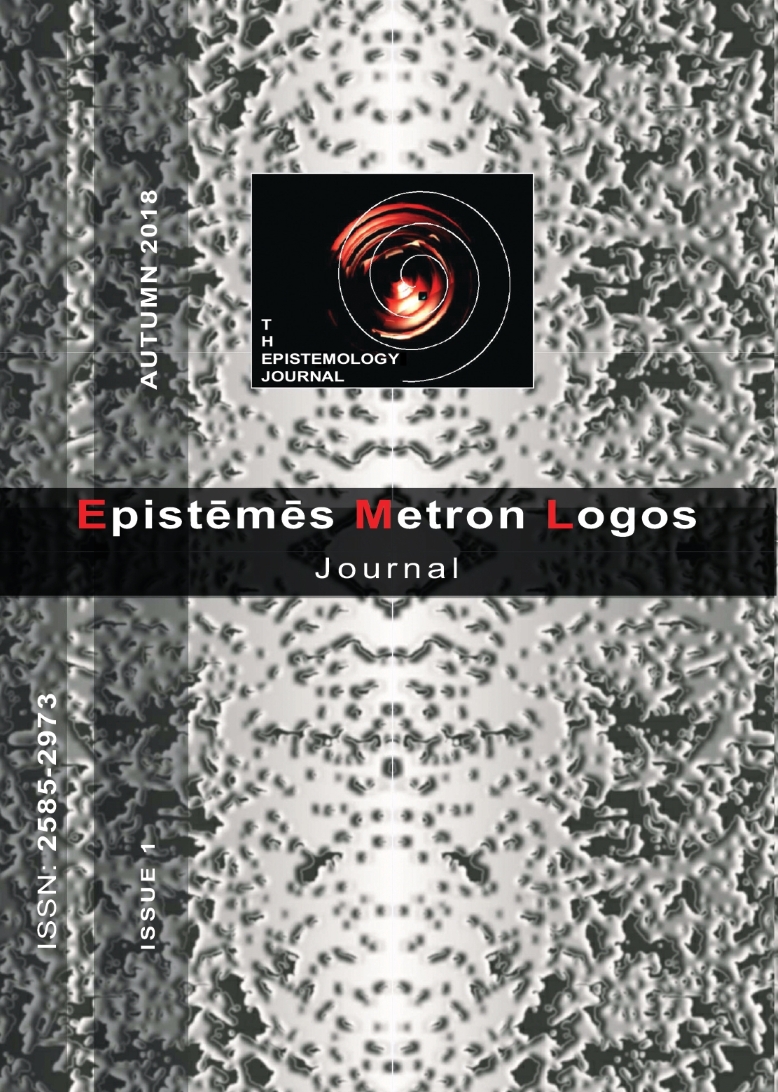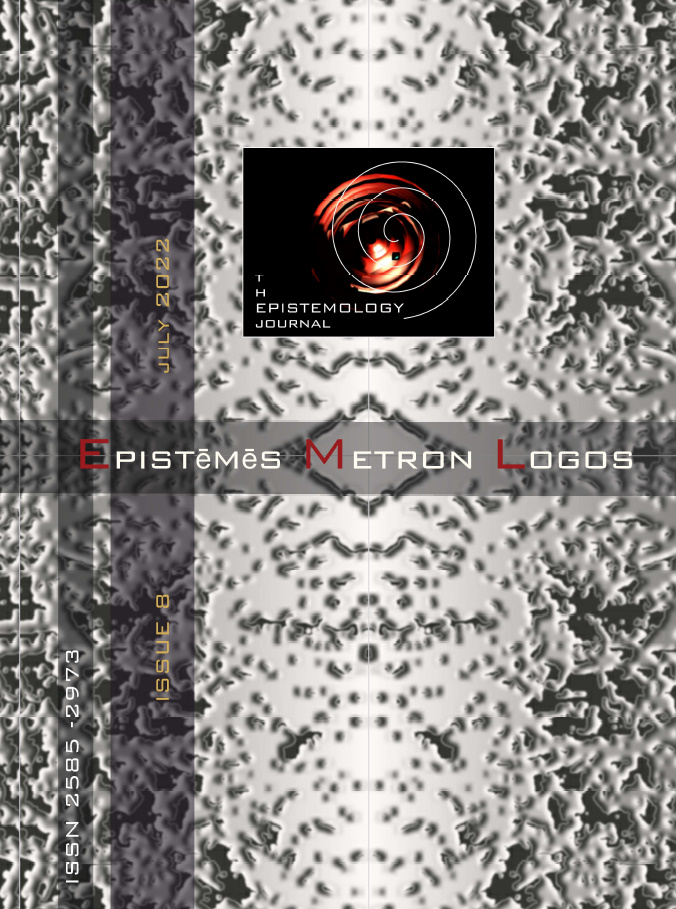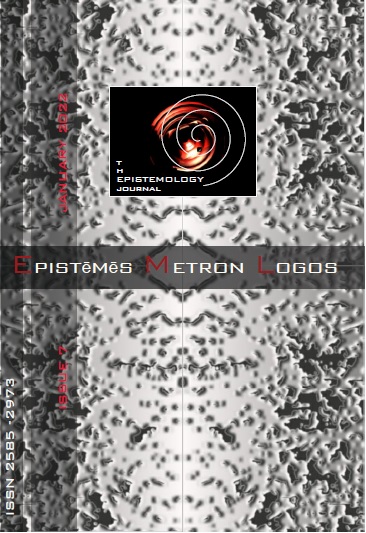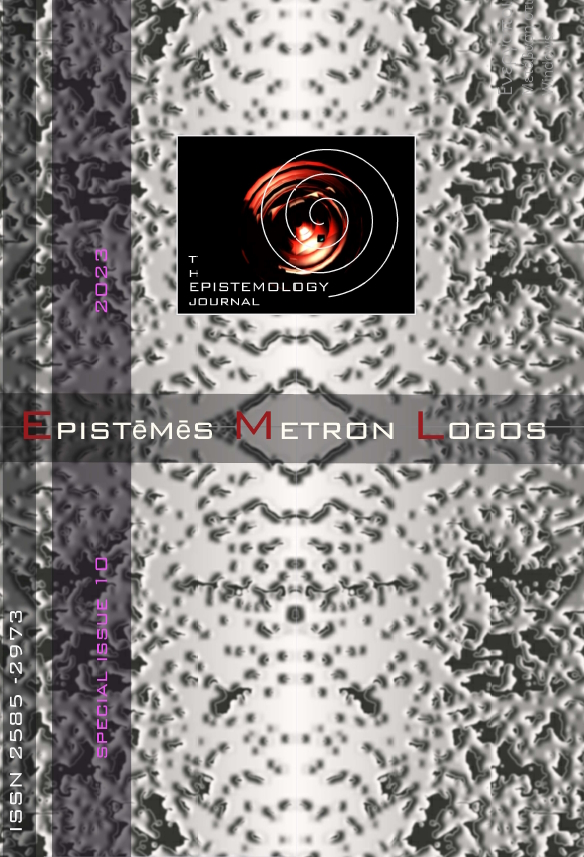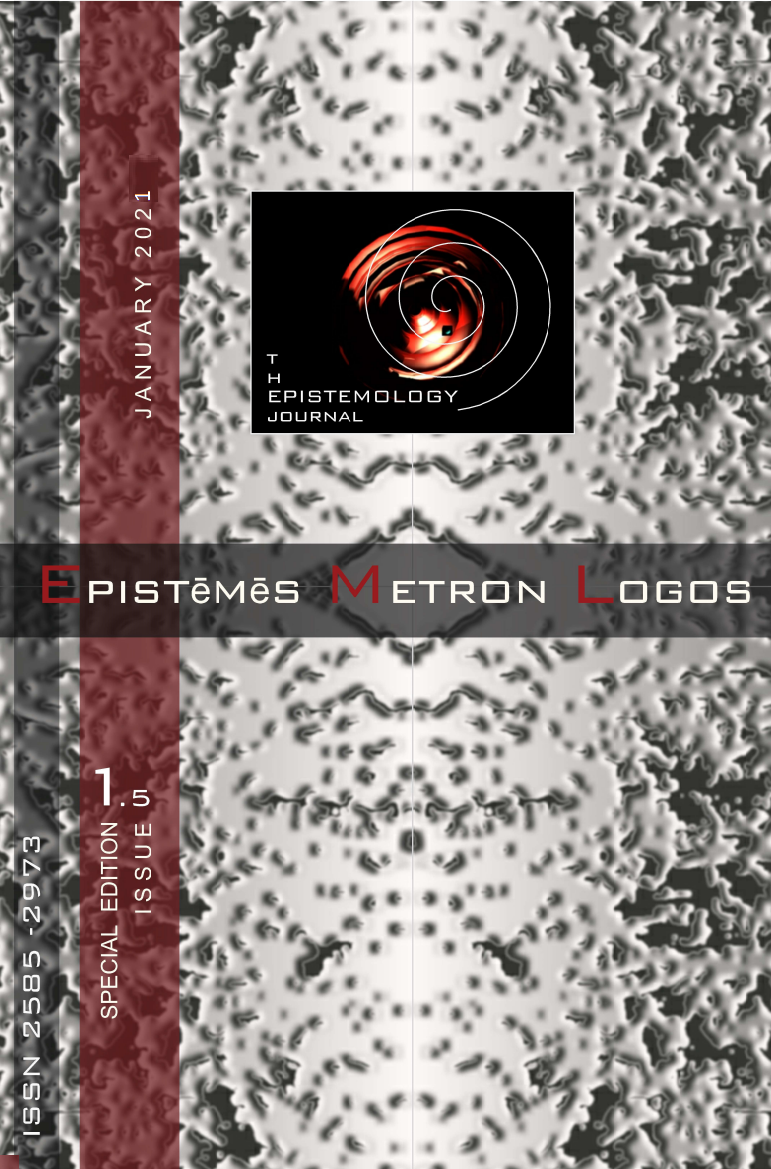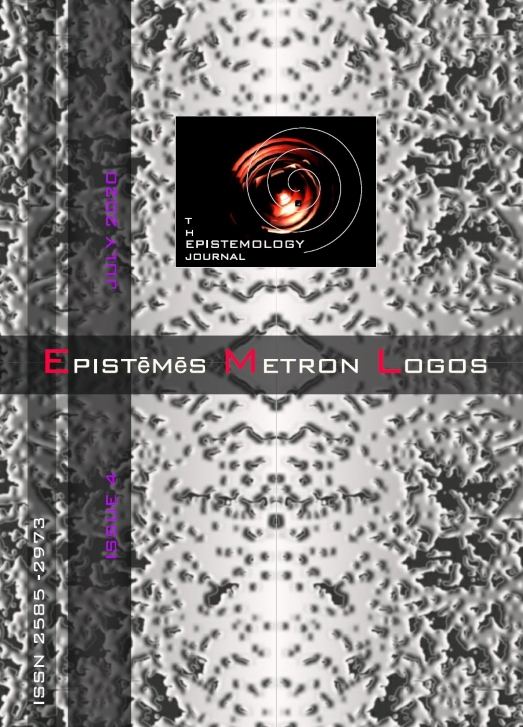Verification in theory and in the sciences
Resumen
In this work, we undertake the task of laying out some basic considerations towards straightening out the foundations of an abstract logical system. We venture to explain what theory is as well as what is not theory, to discriminate between the roles of truth in theory and in reality, as well as to open the road towards clarifying the relationship between theory and the real world. Etymological, cultural and conceptual analyses of truth are brought forth in order to reveal problems in modern approaches and to set the stage for more consistent solutions. One such problem addressed here is related to negation per se, to its asymmetry towards affirmative statements and to the essential ramifications of this duality with respect to the common perceptual and linguistic aspects of words indicating concepts akin to truth in various languages and to attitudes reflected and perpetuated in them and to their consequent use in attempted informal or formal logic and its understanding. Finally, a case study invoking the causes or “causes” of gravity both clarifies and reinforces the points made in this paper.
Article Details
- Cómo citar
-
Papageorgiou, K., & Lekkas, D. (2020). Verification in theory and in the sciences. Epistēmēs Metron Logos, (3), 25–48. https://doi.org/10.12681/eml.22106
- Sección
- Publishing partner

Esta obra está bajo una licencia internacional Creative Commons Atribución-NoComercial 4.0.
Authors who publish with this journal agree to the following terms:
Authors retain copyright and grant the journal right of first publication with the work simultaneously licensed under a Creative Commons Attribution Non-Commercial License that allows others to share the work with an acknowledgement of the work's authorship and initial publication in this journal.
Authors are able to enter into separate, additional contractual arrangements for the non-exclusive distribution of the journal's published version of the work (e.g. post it to an institutional repository or publish it in a book), with an acknowledgement of its initial publication in this journal.
Authors are permitted and encouraged to post their work online (preferably in institutional repositories or on their website) prior to and during the submission process, as it can lead to productive exchanges, as well as earlier and greater citation of published work.

